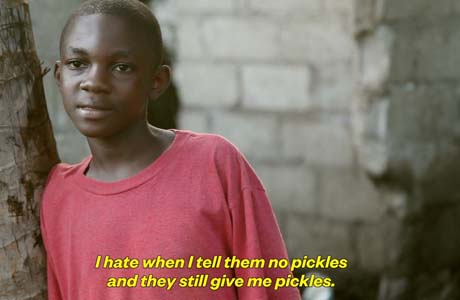November 28, 2012
First World Symptoms
You know that an ad campaign is successful when it not only goes viral, but spawns parodies of ever decreasing funniness. Such is the Water Is Life campaign and its “First World Problems” pitch, in which Third World people are depicted complaining about stuff that we usually complain about. Whilst they speak in their native language about their desperate need for water, the English subtitles record them as saying things such as “I hate it when I tell them no pickles and they still give me pickles'”, or “My house is so big I need a second wi-fi router”; that sort of thing. Brilliant!
Of course, the aim is to get us to sit up, think about our lame complaining, and GIVE to a worthy cause that is attempting to get clean drinking water to the millions upon millions who don’t have access to it. The primary motivator is, unashamedly, guilt, though with a good dose of critical self-reflection thrown in, so not a bad thing all in all.
However the campaign is only half right. It’s is simply scratching the surface of a much deeper malaise, one that has led to the sorts of problems we see depicted in the ads. The minor irritations that the ad pokes fun at are not First World Problems, but rather, First World Symptoms – symptoms of a much deeper malaise than any de-pickled burger or wireless router can deal with. The problem in the West is not that we have minor irritations, but that, as a culture, we are drier and emptier than any drought-ravaged African village well could ever be. There is a deep dissatisfaction at the core of our culture that feels entitled to be angry about the smallest inconveniences. Such anger cannot be sated because what sates it is akin to a Bandaid on the skin sore, when all along the problem is a deep internal blood disorder.
GK Chesterton said” “Meaninglessness does not come from being weary of pain. Meaninglessness comes from being weary of pleasure.” The solution to masking meaninglessness therefore, is to come up with a constant list of faux pains – even as you leave real pain behind. Hence Paris Hilton types can have a dummy spit in a restaurant about the wrong type of Evian water being served because it helps them maintain the rage that somehow they are being hard done by; that there is still a reason to struggle onwards. If all pains – real or imagined – were removed, we would suddenly be left standing there unadorned and exposed for who we really are – ungrateful and selfish idolators.
This same malaise threatens the church – the one community that has good reason not to be dissatisfied. Yet then again, it was to the church of the Old Testament that God spoke through the prophet Jeremiah:
For my people have committed two evils: they have forsaken me, the fountain of living waters, and hewed out cisterns for themselves, broken cisterns that can hold no water
Our desperate need – indeed the desperate need of even those with no potable water – is not simply “running water”, but as Jesus says so cryptically to the Samaritan woman in John 4: “living water“. That we should give the Third World everything they need for this life seems beyond dispute, especially given the riches of the West. But that we should leave it there would condemn them – in the long run – to the endless cycle of complaint that is endemic to our culture, and which is, in the final analysis, a symptom of a much deeper thirst than any water, Evian or otherwise, can slake.
Written by
There is no guarantee that Jesus will return in our desired timeframe. Yet we have no reason to be anxious, because even if the timeframe is not guaranteed, the outcome is! We don’t have to waste energy being anxious; we can put it to better use.
Stephen McAlpine – futureproof
Stay in the know
Receive content updates, new blog articles and upcoming events all to your inbox.



